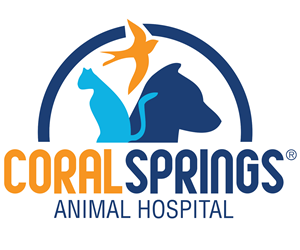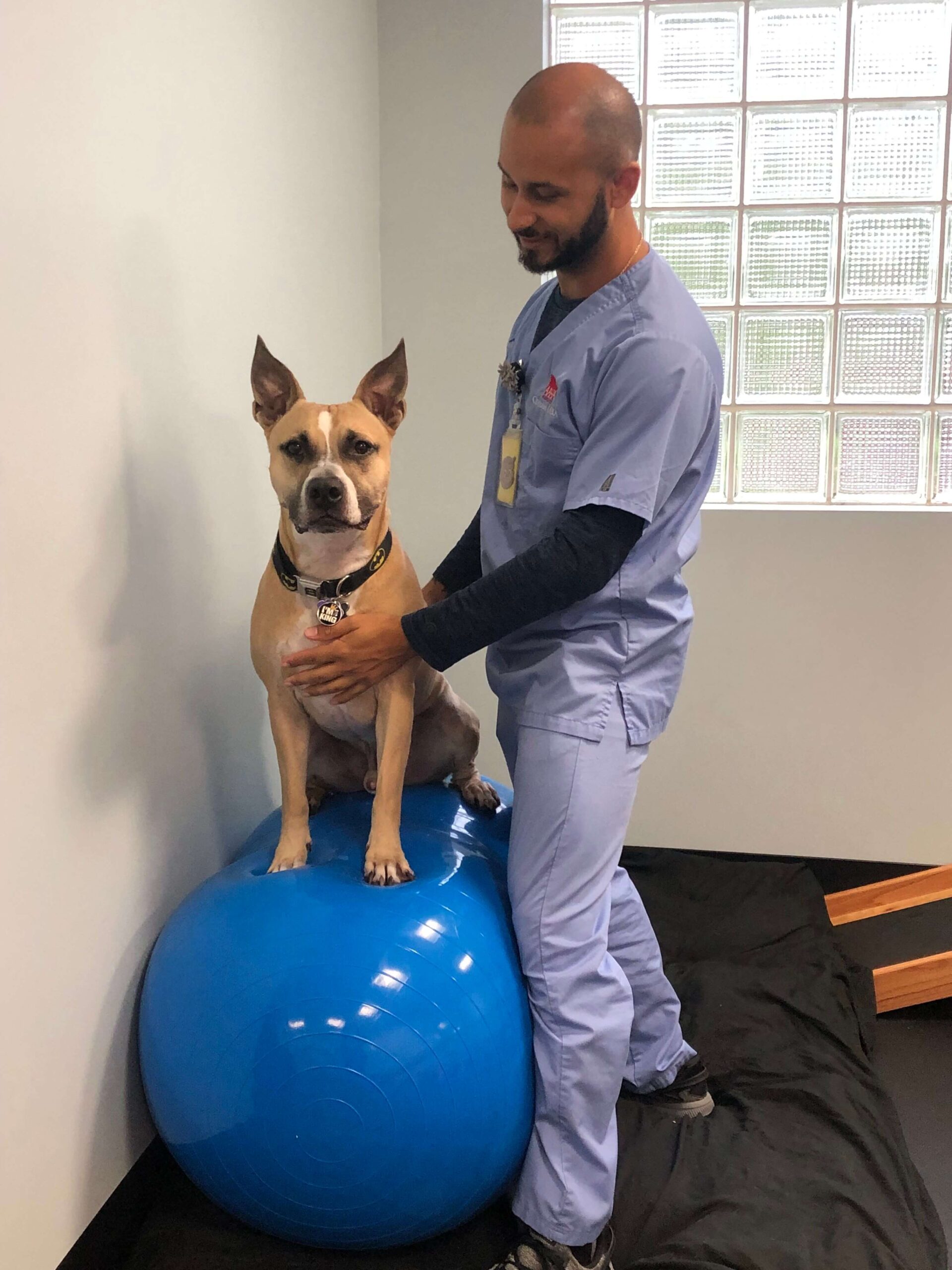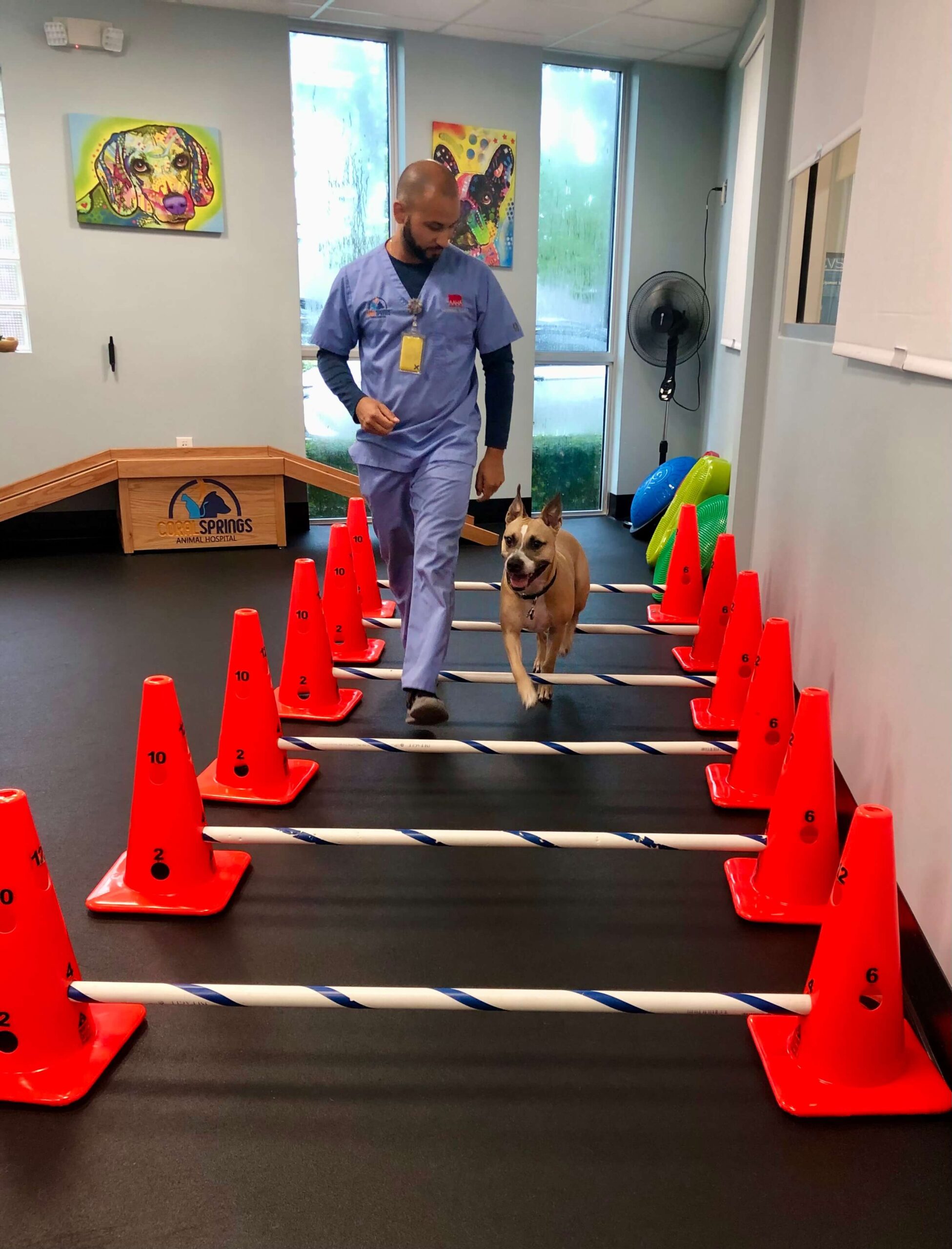Veterinary Canine Rehabilitation & Sports Medicine
What is Canine Physical Rehabilitation?
Canine physical rehabilitation is the treatment of injury or illness to decrease pain and restore function. It is similar to physical therapy in people. Benefits of such therapies include reduced pain and inflammation, improved circulation, quicker surgical recovery time, muscle strengthening and endurance, improved mobility, range of motion, and functional abilities, as well as weight loss. If you are looking for dog rehabilitation, Coral Springs Animal Hospital has everything your pet needs!
What Should I Expect?
During your initial consultation, our dog rehabilitation specialist (Certified Canine Rehabilitation Therapist), assisted by our certified canine rehabilitation veterinary nurse, will thoroughly examine and evaluate your dog and recommend the best possible course of treatment tailored specifically to your dog’s needs. Our rehabilitation therapist will then instruct you on what you can do at home to treat your pet. Once the treatment plan is identified, we can begin setting up a schedule of dog rehabilitation sessions to start therapy. Treatment sessions are scheduled on Mondays-Fridays. Sessions will be scheduled as drop-off appointments in which your dog will spend several hours here receiving multiple treatments and exercises throughout the day. When you return, you will meet with your therapist and discuss your dog’s progress and address any questions you may have.
What Should I Expect?
During your initial consultation, our dog rehabilitation specialist (Certified Canine Rehabilitation Therapist), assisted by our certified canine rehabilitation veterinary nurse, will thoroughly examine and evaluate your dog and recommend the best possible course of treatment tailored specifically to your dog’s needs. Our rehabilitation therapist will then instruct you on what you can do at home to treat your pet. Once the treatment plan is identified, we can begin setting up a schedule of dog rehabilitation sessions to start therapy. Treatment sessions are scheduled on Mondays-Fridays. Sessions will be scheduled as drop-off appointments in which your dog will spend several hours here receiving multiple treatments and exercises throughout the day. When you return, you will meet with your therapist and discuss your dog’s progress and address any questions you may have.
Current Therapies Offered For Cat & Dog Rehabilitation
- Hydrotherapy/Underwater Treadmill
- Acupuncture
- Laser Therapy
- Massage
- Manual Therapy
- Land Treadmill
- Therapeutic Exercises
- Therapeutic Ultrasound
- Electrical Muscle Stimulation
REGENERATIVE MEDICINE
- Shockwave Therapy
BENEFITS OF DOG REHABILITATION
- Decreased pain
- Quicker recovery from surgery
- Improved mobility and function
- Improved range of motion
- Muscle strengthening and endurance
- Weight Loss
The Following Treatments Are Used In Dog Rehabilitation:
Massage Therapy: used to reduce pain, improve joint mobility, increase circulation, and to calm the pet. It is typically done at the beginning of the therapy session. Massage can be taught to pet owners to perform at home.
Hot/cold therapy: the use of heat or ice to treat muscles and joints. Cold therapy decreases inflammation and reduces pain, while heat therapy increases blood flow and causes muscle relaxation.
Laser therapy: the use of light (typically infrared) energy to stimulate healing and alleviate pain. It alleviates muscle and joint discomfort, relieves symptoms of arthritis, relaxes muscle spasms, and increases blood flow to an area, helping injuries to heal.
Acupuncture: the insertion of tiny needles into specific points to produce a response within the body. Stimulation of these points leads to an increase in circulation, pain relief, nerve stimulation, and it also has a relaxing effect. Acupuncture is commonly used to treat pain and neurologic issues.
Neuromuscular electrical stimulation: sends electrical impulses to nerves causing muscles to contract and build strength. It can be used to prevent muscle atrophy, offsetting the effects of disuse that may occur after surgery or injury.
Therapeutic ultrasound: is the use of sound waves to break up scar tissue, increase muscle elasticity, improve circulation, and reduce pain. It is commonly used for muscle and tendon injuries, fractures, and areas of restricted range of motion.
Extracorporeal shockwave therapy: is the application of short, intense sound waves to stimulate healing in the body. It is used for the treatment of arthritis, tendon injuries, scar tissue, non-healing fractures, and chronic wounds.
Therapeutic Exercises: can improve strength, flexibility, balance, and coordination, and can slow the progression of the disease, leading to enhanced mobility and better quality of life. An individualized exercise plan is designed for each pet with specific goals.
Land Treadmills: useful for encouraging the use of an injured leg following surgery or injury, retraining walking after a neurologic illness, and for fitness training. They can also be used to warm up muscles prior to exercise.
Hydrotherapy: utilizes the warmth, buoyancy, and resistance of water in a controlled environment to provide a safe yet challenging exercise. It consists of a treadmill belt submerged in a water tank, and the pet is guided to walk with water up to their knees. Hydrotherapy can decrease recovery time from surgery, improve pain from arthritis through low-impact exercise, and enhance cardiovascular fitness for weight loss and athletic performance.
Custom fitted splints, braces, carts, and prosthetic legs are available for dogs and cats. These devices are used to support an injured leg while it heals, to correct a deformity, or to re-train a pet to walk.
Dog Rehabilitation therapy is an area of veterinary medicine that has been exponentially growing in the past 20 years. Its use is becoming increasingly more popular among pet owners for its safe and effective treatments. It is commonly used as a sole treatment or in conjunction with surgery to provide the most effective results.
We are available for sports medicine on Monday, Wednesday and Fridays.
Call today to book your Dog Rehabilitation consultation with our Board-Certified Canine Rehabilitation & Sports Medicine Specialist at (954) 753-1800.



